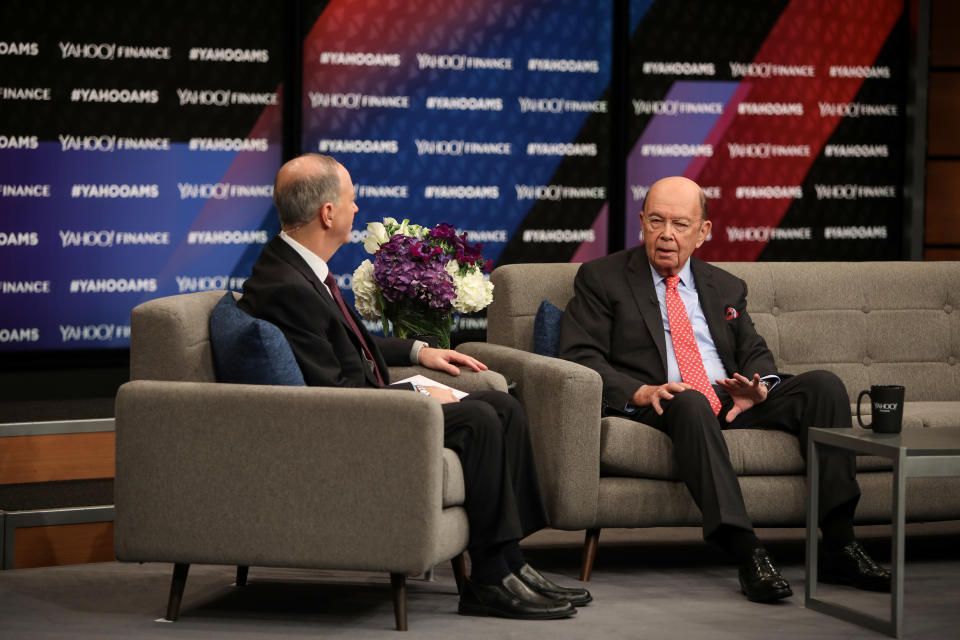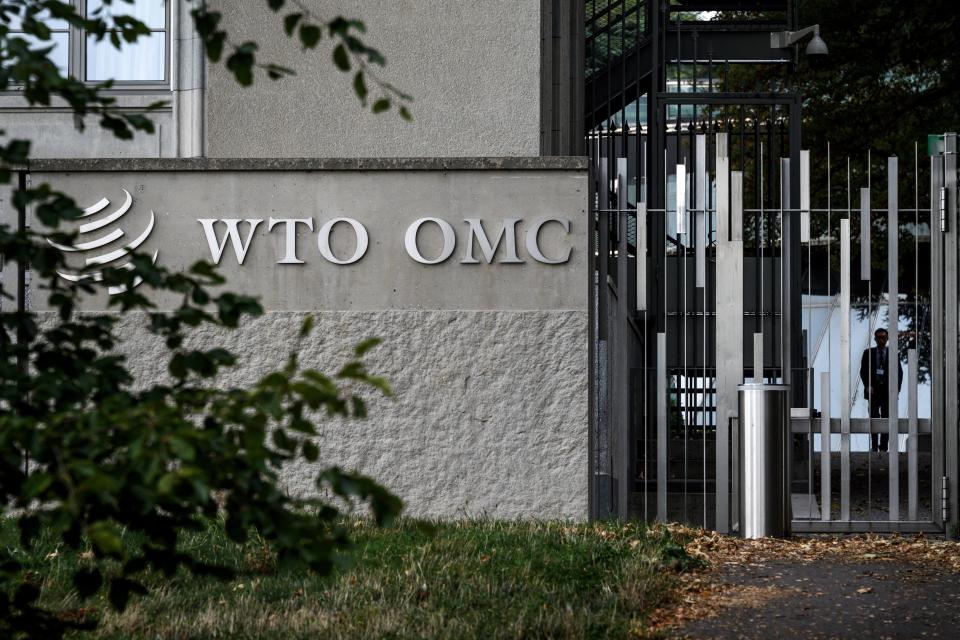Trump thinks tariffs are the only way to get China to change, some say no
President Donald Trump’s tough stance with China has won over many supporters — from Democrats to farmers. But not everyone is a fan of his approach of imposing tariffs.
“Billions of Dollars are pouring into the coffers of the U.S.A. because of the Tariffs being charged to China, and there is a long way to go,” Trump tweeted Thursday morning. He declared a trade war with China by slapping 25% tariffs on $50 billion worth of imported goods from China in June and threatened to raise the current 10% tariffs on $200 billion worth of goods to 25% next year, although both sides are reportedly exploring a deal to delay that would prevent an escalating trade war.
To investors, business people and economists, tariffs aren’t as sweet of a deal as the president claims. When businesses voice concerns over tariffs, the administration has a centerpiece in its argument: slapping tariffs on China is a negotiation tactic and the only effective tool to push China to change.
“What other weapons do we have?” U.S. Commerce Secretary Wilbur Ross said at the Yahoo Finance All Markets Summit. Art Laffer, an advisor to Trump during his 2016 presidential campaign, said Trump told him that he has “very little leverage except by threatening tariffs.”
But outside the administration, people see other ways to address China’s unfair trade practice. Neil Bradley, chief policy officer at the U.S. Chamber of Commerce, while recognizing the administration’s efforts to confront China, called the idea of using tariffs as the only solution “misguided”.
“There’s a lot of other places to play here to confront this problem without resorting to broad-based tariffs. It would harm consumers and it would harm the American economy,” said Bradley at the Yahoo Finance All Markets Summit.
Bradley sees indicting bad actors and working with allies in a collective approach is a better way to deal with China. Earlier this month, the Department of Justice charged a Chinese state-owned company with stealing trade secrets from an American technology company.
“That’s a blunderbuss approach to a very real problem versus a tactical scalpel-like approach, where you identify the bad actors and punish them,” Bradley said of imposing tariffs.
The administration prefers bilateral trade talks

Bradley also believes “the best thing” the U.S. can do is to team up with other players in the world’s trade system, including Japan, Canada, Europe, and confront China collectively.
But the administration doesn’t seem to be a fan of the multilateral approach. While in trade disputes with China, Trump was also in tough negotiations with the EU and other major trading partners.
The administration prefers a bilateral trade deal rather than multilateral deals, according to Ross. In a multilateral negotiation, Ross said, a country has to satisfy the requirements of various partners, which means they have to offer more. Also, a multilateral deal is more time-consuming and has a greater chance of falling apart.
WTO is not as useless as Trump thinks

The administration also doesn’t put much faith in the World Trade Organization (WTO). In the past two years that the Trump administration has been in place, the U.S. only brought one complaint against China. And Trump has even threatened to withdraw from the organization, founded in 1994 to solve trade disputes.
Contrary to many people’s belief, an analysis by CATO Institute shows China actually has a pretty solid track record in complying with complaints brought to the WTO. The analysis looked at 41 complaints brought against China from 2004 to 2018 on 27 separate issues. In all 22 completed cases, with one exception where a complaint was not pursued, China’s response was to take some action to move toward greater market access.
“I think that China’s behavior is actually not that different from every other government’s behavior. And the rules could apply pretty well here,” said Simon Lester, a trade expert at the Cato Institute who authors the report.
“The way they’ve approached it is to just impose tariffs first and then demand concessions from China. And I don’t see how that’s going to work,” said Lester. “Politically, it’s very difficult for China to make any concessions in that environment.”
Krystal Hu covers technology and trade for Yahoo Finance. Follow her on Twitter.
Read more:
Americans who say their finances haven’t improved mostly blame Trump
Why you won’t feel much pain from Trump’s tariffs this holiday season
Amazon bought Whole Foods a year ago. Here’s what has changed
